The ‘Surge’ Bait and Switch
Here's a surprise: Remember how we were told that if we just waited until the fall, we'd see that George W. Bush's "surge" was working in Iraq? Well, now it turns out that we shouldn't expect answers in September after all.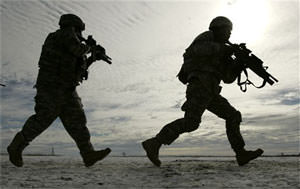
WASHINGTON — Here’s a surprise: Remember how we were told that if we just waited until the fall, we’d see that George W. Bush’s “surge” was working in Iraq? Well, now it turns out that we shouldn’t expect answers in September after all.
White House spokesman Tony Snow was purposeful on Wednesday in stomping, trampling, tap-dancing upon and otherwise giving a definitive beat-down to any expectations of a serious, fact-based reassessment of Iraq policy in the fall. Never mind that the White House raised those expectations in the first place.
The September scenario has been a rhetorical mainstay for the administration and its supporters, a major argument for ignoring all the bad news from Iraq and giving Bush’s troop escalation a chance to work. Let’s wait for Gen. David H. Petraeus, the man who’s now running the war, to submit his progress report. At that point, went the White House argument, the “way forward” would become clear.
The fog of war seems to have closed back in. “I have warned from the very beginning about expecting some sort of magical thing to happen in September,” Snow told the White House press corps, whose collective recollection was somewhat different. “No, I’m not. What I’m saying is in September you’ll have an opportunity to have metrics.”
Actually, there are plenty of “metrics” already. A Pentagon report, released Wednesday, finds that since the U.S. troop escalation began, the overall level of violence in Iraq has not decreased and civilian casualties have actually risen slightly. There has been a decline in violence in Baghdad and Anbar province — the areas where most of the 28,700 extra “surge” troops are deployed — but an increase in other parts of the country.
The rest of the report holds few surprises for anyone who has been paying attention. The Iraqi government is no closer to a political agreement that Sunnis, Shiites and Kurds can all live with (assuming such an agreement is even theoretically possible). Militias, not government forces, continue to rule much of Baghdad and the rest of the country. “Sectarian friction” is the euphemism du jour for civil war.
And that, mind you, is the assessment of the U.S. military, not some bunch of “cut and run” naysayers. U.S. casualties, meanwhile, are increasing markedly as “surge” troops deploy into hot spots. The only real non-negative news out of Iraq is the dog that didn’t bark, at least not yet: The latest bomb attack on the revered Shiite mosque in Samarra has not, as of this writing, triggered the spasm of unrestrained sectarian bloodletting that everyone fears.
In that context, it’s easy to understand why the White House would want everyone to forget about the whole September thing. It’s obvious that Iraq certainly won’t look much better by then, and may look considerably worse.
Snow said he was emphasizing “metrics” because he knew that in September, “some people are going to try to make the argument, if the job is not done and if they haven’t perfected it and if they haven’t achieved all the — then it’s a failure. I wanted to guard against that.”
Precisely. In the world of retail, this is known as bait and switch.
The thing is that no one should be surprised. On Iraq, Bush has been nothing if not consistent. Never has he given any indication of seriously considering a real change of policy. Every grudging concession, every ballyhooed initiative, every single announced change has been on the margins — dump Donald Rumsfeld, appoint Petraeus, order the “surge.” Politicians, analysts and even generals can talk all they want about civil war, about redeployment, about phased withdrawal. None of that is remotely on the president’s agenda.
Will anything Petraeus says in his September report change Bush’s determination to fight on in Iraq toward ill-defined “victory” — to “win” what has become a multifaceted mess of sectarian warfare that everyone is destined to lose? Almost certainly not. If there is a single encouraging paragraph in the entire document, Bush will seize on it as vindication.
Facts on the ground have never been the determining factor in Bush’s policy on Iraq. Facts don’t even seem to be a particularly important factor. It was considerate of Tony Snow to start preparing us for the inevitable — and, indirectly, to remind congressional leaders that if they want to change the president’s course on Iraq, they won’t do it through reasoned persuasion. George Bush can’t bring himself to question his basic vision of Iraq, and I doubt he ever will.
Eugene Robinson’s e-mail address is eugenerobinson(at symbol)washpost.com.
© 2007, Washington Post Writers Group
Your support matters…Independent journalism is under threat and overshadowed by heavily funded mainstream media.
You can help level the playing field. Become a member.
Your tax-deductible contribution keeps us digging beneath the headlines to give you thought-provoking, investigative reporting and analysis that unearths what's really happening- without compromise.
Give today to support our courageous, independent journalists.

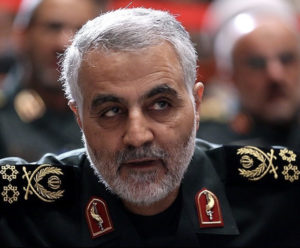

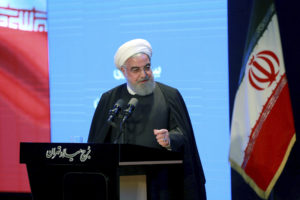

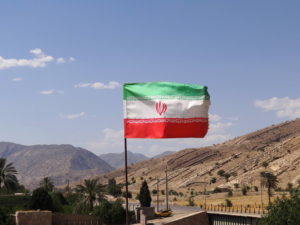
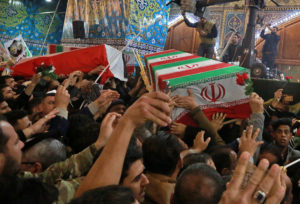


You need to be a supporter to comment.
There are currently no responses to this article.
Be the first to respond.